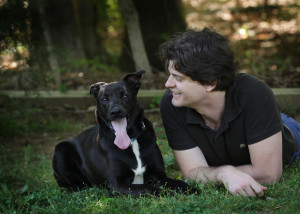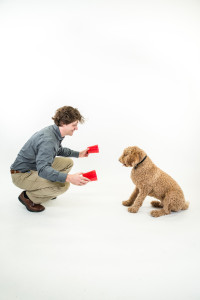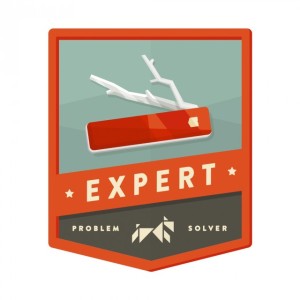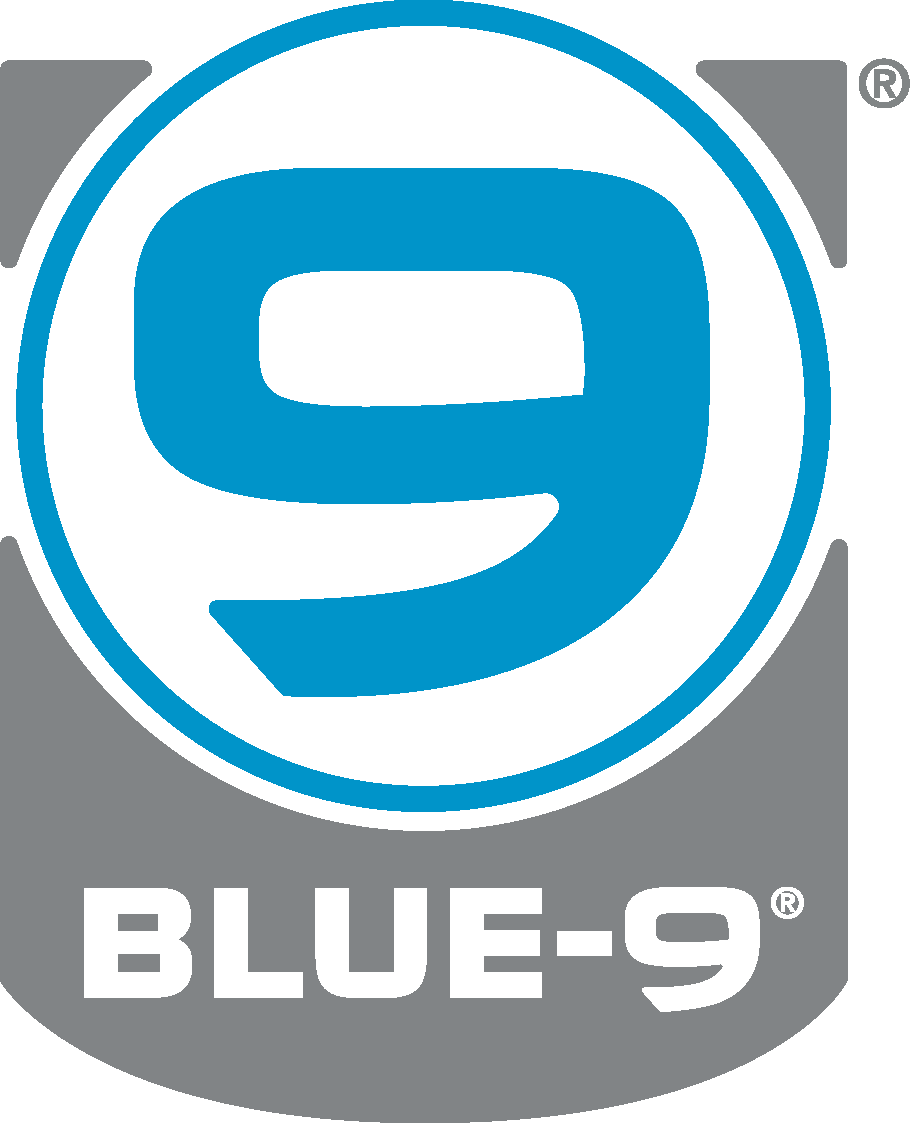How Dognition can Give You a New Perspective on Your Best Friend
CATCH is thrilled to bring you this special guest blog with Dr. Brian Hare, the Director of the Duke Canine Cognition Centre and author of the New York Times Bestseller, The Genius of Dogs.

Dr. Brian Hare and his adopted mixed breed, Tassie
As a dog researcher, if there’s one thing I’ve learned, it’s that you never stop learning. I thought that after fifteen years of researching dog cognition, I would have a pretty good idea of what my dog Tassie would do in Dognition, a tool I created to help people find out how their dogs think. It turns out I was totally taken by surprise.
My dog Tassie is a black shelter mutt we adopted from the Orange County Animal Shelter. Tassie isn’t the most affectionate dog I’ve owned. He is more interested in object play, and loves solving problems. So I thought he would perform really well in the Reasoning dimension, which requires logic and reasoning abilities. It turns out he was much more on the Impulsive end of the Reasoning. He made decisions on the fly, and didn’t really think through the solutions the way I thought he would. On the other hand, in the Empathy games, he came out as being on the far Bonded end of the scale.
This helped me look at Tassie in a new way. I realized that even though he wasn’t a big hugger, he spends a lot of time seeking eye contact – which science has shown increases oxytocin in both owners and their dogs. (Oxytocin is a hormone associated with feelings of bonding, pleasure and affection.) At the same time, I could be a little more understanding when Tassie gets confused by gravity when playing fetch (he has a tendency to drop the ball on a hill).

Using a “two-cups” test to reveal a dog’s unique style of intelligence.
Decades of the best cognitive and neurobiological research no longer supports the idea of a single dimensional measure of intelligence. The brain is not either more or less full of intelligence, like a glass of water. Instead, the brain is more like a computer, where different parts are specialized for solving different types of problems.
After working with thousands of service dogs, military dogs and pet dogs, I created Dognition as a tool to reveal a dog’s unique style of thinking. Dognition is not about ranking a dog’s IQ — it’s about discovering which cognitive skills an individual dog relies on to navigate the world.
In the last decade, we have learned more about how a dog’s mind works than we have in the past century. Dognition is a synthesis of all this research that can be used by anyone. Essentially, Dognition is a series of games that assess what researchers believe are five core competencies of cognition: Empathy, Communication, Cunning, Memory, and Reasoning. Each game in the Toolkit is based on peer-reviewed scientific studies from canine cognition experts. These methods have proven to be effective measures of each cognitive dimension.
When training, every trainer knows that each dog requires a different approach. Dognition is about finding the cognitive strategies that a dog uses to navigate their world. Perhaps they are a great communicator, and can read their human like a book. Or perhaps one dog is a little less social, but a great problem solver.

One of many badges that might signify your dog’s thinking style.
Dognition is about finding out a dog’s cognitive strengths, and this can be invaluable to informing a training strategy. For instance, if a dog scores high in Cunning, then they are skillful at using their owners’ information to deceive them. A cunning dog pays close attention to where their owner is looking, and is not above disobeying if they think they can swipe a treat without their owner noticing. An owner may think that their dog is disobedient because they are stupid – on the contrary, a cunning dog is disobedient because they are too smart!
So if you have ever stared into a dog’s eyes and wondered what they are thinking, Dognition can help you find out.
Please accept this invitation to try it for free today. I bet you’ll discover some surprising insights about your best friend: https://www.dognition.com/portal/users/sign_up
-Brian Hare
Dr. Brian Hare is an Associate Professor at Duke University and the Director of the Duke Canine Cognition Centre. Dr. Hare is also a co-founder of Dognition and the author of the New York Times Bestseller, The Genius of Dogs.






 Phone:
Phone:
I find that very interesting! Who can I go to to become a dog trainer? I have no money, so I thought I could be an apprentice. I’m in Chicago. Any advice?
I hate to say this, but nothing worthwhile or valuable in life is free. You have to work for it – and work hard. The information and experience that dog-behavior specialists and trainers have garnered over . . . (Read more: http://www.pbcdallas.com, and click on “How to Become a Dog Trainer.)